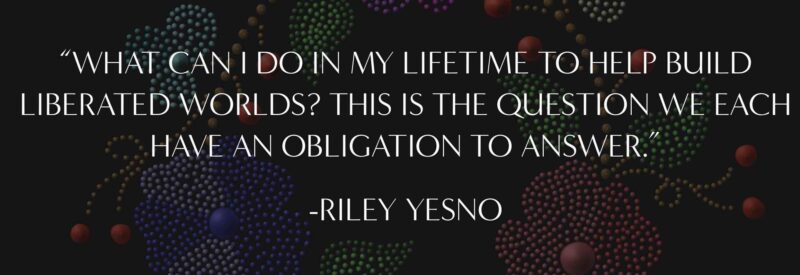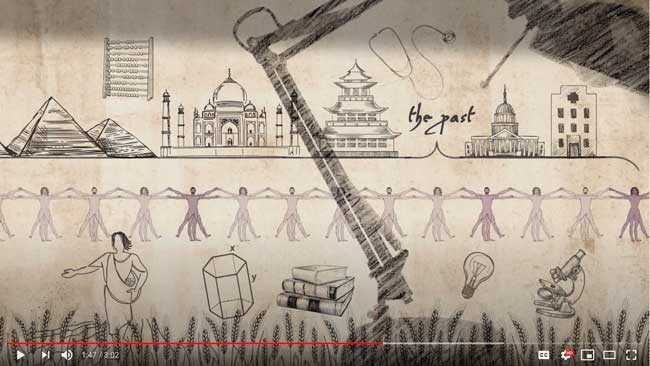What is the correct terminology: American Indian, Indian, Native American, Indigenous, or Native?
All of these terms are acceptable. The consensus, however, is that whenever possible, Native people prefer to be called by their specific tribal name. In the United States, Native American has been widely used but is falling out of favor with some groups, and the terms American Indian or Indigenous American are preferred by many Native people. Native peoples often have individual preferences on how they would like to be addressed. When talking about Native groups or people, use the terminology the members of the community use to describe themselves collectively.
Source: FAQ “Check out the answers to some of the questions that educators frequently ask about Native Americans”, National Museum of the American Indian
URL: https://americanindian.si.edu/nk360/faq/did-you-know#category-1
Date Visited: 5 February 2023
Things to keep in mind
Avoid generalization
Use conditional language instead! Instead of generalizing phrases like “all Native Americans”, use conditional language such as “most Native Americans” or “different Indigenous cultures”. There is no one “Indian” language, culture, or way of thinking. Generalizations negate the diversity of Native peoples and create an inaccurate understanding for students. Whenever possible, have your students learn about specific individuals from a community.Use present tense and contemporary examples
Only using the past tense reinforces the myth of the “Vanishing Indian” and negates the experiences and the dynamic cultures of Native peoples today. If your curriculum teaches the history of Native Americans, also do some research on the community today. Teach your students about contemporary culture and topics. Use the present tense and make Native Americans relevant and contemporary.Emphasize that Indigenous peoples have living cultures that change over time. If you do need to use the past tense, provide context by including dates. Otherwise, it may seem like Native cultures are no longer living.
Refrain from using terminology and phrases that perpetuate stereotypes
Common phrases like “Indian Princess”, “Low man on the totem pole”, “sitting Indian style”, etc. perpetuate stereotypes and imply a monolithic culture. If you are unsure about a phrase, do some research into its origins and think about its meaning and implications.
Source: “The Impact of Words and Tips for Using Appropriate Terminology: Am I Using the Right Word?”, National Museum of the American Indian
URL: https://americanindian.si.edu/nk360/informational/impact-words-tips
Date Visited: 5 February 2023

Listen to (Land) Back to the Future by Riley Yesno on the CBC Ideas website >>
Do you remember the first time YOU learned about American Indians?
If you are like most Americans, you probably received only a tiny glimpse into the rich and diverse cultures, histories, and contemporary lives of Native peoples.
You may have even learned some things that were limited, false, or misleading.
During my childhood, for example, we learned that American history began with European settlement of the “New World”—a vast wilderness populated only by a few wandering hunter-gatherers.
The messages from popular culture were equally clear. Contemporary Indians were not relevant. Indians were figures of the past.
Today, misrepresentations about Native people often remain unchallenged in the educational system and culture of the United States.
It isn’t because teachers don’t care. It’s because many teachers and students just don’t have the information or resources to provide deeper and more comprehensive knowledge and perspectives.
That’s why the National Museum of the American Indian is joining with Native communities and educators to develop a web-based educational initiative called Native Knowledge 360° that will help change the way American Indian histories, cultures, and contemporary lives are taught in K–12 classrooms (you can learn more about it here).
Source: email from Kevin Gover (Pawnee), Director
National Museum of the American Indian
31 January 2018

Watch “The Good Ancestor – The Legacies We Leave” (3 min.): An animation that explores the legacies we might leave for future generations >>
Links to some of the most important organisations, thinkers and doers that are leading the way and that have inspired the book The Good Ancestor by Roman Krznaric >>
Listen to related discussions on CBC Unreserved: Canada’s radio space for indigenous community, culture, and conversation | CBC related posts >>